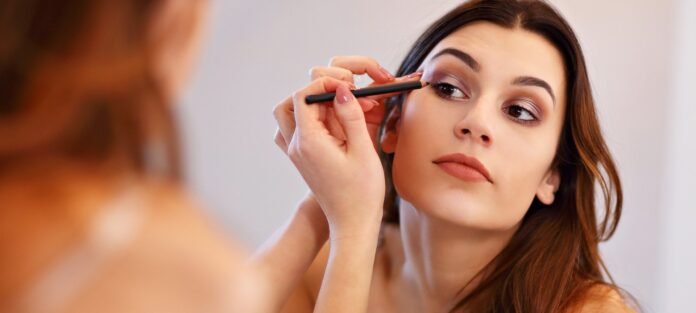Transitioning from the perception of makeup as either beneficial or harmful to the skin to a deeper understanding of its effects, the relationship between makeup and skin health is more complex than often assumed. While some believe that makeup can clog pores and exacerbate skin issues, others argue that it provides protection and enhances appearance. Exploring the nuances of this topic reveals a multifaceted relationship that varies depending on factors such as product formulation, application technique, and individual skin type.
Starting with the misconception that makeup inevitably harms the skin, it’s important to recognize that not all makeup products are created equal. Transitioning from blanket assumptions to informed choices, the ingredients and formulation of makeup products play a significant role in determining their impact on the skin. Some products may contain comedogenic ingredients that can clog pores and lead to breakouts, while others are formulated with non-comedogenic ingredients that are less likely to cause skin irritation.
However, transitioning from product formulation to application technique, how makeup is applied also influences its effect on the skin. Proper cleansing and removal of makeup are essential steps in maintaining skin health. Transitioning from neglect to diligence, failure to remove makeup thoroughly can result in the accumulation of product residue, oil, and impurities on the skin, potentially leading to congestion and inflammation.
Also, transitioning from makeup application to skincare routine, incorporating effective skincare practices can help mitigate potential harm from makeup. Transitioning from reliance solely on makeup to a holistic approach, using skincare products that address specific skin concerns, such as acne or sensitivity, can complement the benefits of makeup and support overall skin health.
However, transitioning from potential harm to benefits, makeup can also provide protective and aesthetic benefits for the skin. Transitioning from skepticism to recognition, certain makeup products contain ingredients that offer sun protection, hydration, and antioxidant benefits, helping to shield the skin from environmental damage and premature aging.
Furthermore, transitioning from concerns about appearance to self-expression and confidence, makeup has the power to enhance features, boost self-esteem, and foster creativity. Transitioning from a focus solely on external appearance to internal empowerment, the psychological benefits of makeup should not be underestimated.
Makeup and Skincare Role
Additionally, transitioning from one-size-fits-all assumptions to personalized skincare, individual skin types and concerns play a crucial role in determining how makeup affects the skin. Transitioning from generalizations to customization, what works for one person may not work for another. Therefore, it’s essential for individuals to understand their skin’s unique needs and choose makeup products accordingly.
Moreover, transitioning from short-term beauty goals to long-term skin health, it’s important to consider the cumulative effects of makeup use over time. While makeup may provide immediate cosmetic benefits, prolonged and excessive use without proper skincare practices can contribute to skin issues such as irritation, sensitivity, and premature aging. Transitioning from a focus solely on appearance to prioritizing skin health, striking a balance between makeup application and skincare maintenance is essential for preserving skin integrity in the long run.
Furthermore, transitioning from myths to science-backed insights, research on the relationship between makeup and skin health continues to evolve. Transitioning from anecdotal evidence to empirical data, studies have examined various aspects of makeup use, including its effects on skin barrier function, hydration levels, and microbiome composition. By integrating scientific findings into skincare practices, individuals can make more informed decisions about the products they use and their overall impact on skin health.
In addition, the relationship between makeup and skin health is multifaceted and influenced by a variety of factors. Transitioning from oversimplified assumptions to a more nuanced understanding, it’s clear that makeup can have both positive and negative effects on the skin, depending on factors such as product formulation, application technique, and individual skin type. By adopting mindful skincare practices, making informed product choices, and considering the long-term implications of makeup use, individuals can maintain a healthy balance between enjoying the benefits of makeup and preserving skin health for years to come.

